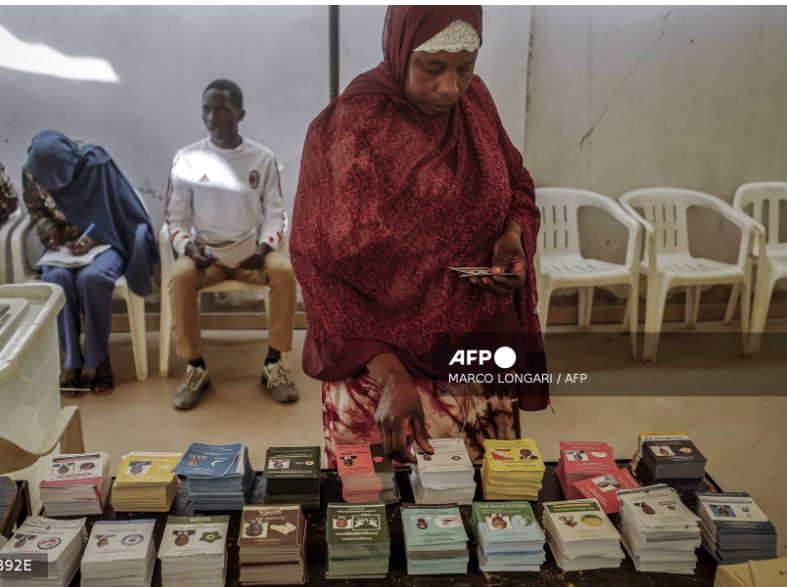Senegal started voting on Sunday to pick a new president in an uncertain race after three years of conflict and political problems.
About 7.3 million voters are registered in the West African country. Two top candidates have emerged – Amadou Ba, the former prime minister of the ruling coalition, and Bassirou Diomaye Faye, an anti-establishment candidate.
Both Ba and Faye were once tax inspectors but now have little in common. Ba, 62, promises to continue the current situation while the 43-year-old Faye pledges significant change and left-wing pan-Africanism.
Both candidates claim they will win in the first round, but it is likely that a second round will happen with 15 other candidates in the running, including the only female candidate, at a date yet to be decided.
Former Dakar mayor Khalifa Sall, 68, is seen as having a chance despite being an outsider.
42-year-old voter Mohamed Bop told AFP in Dakar that it's a meaningful and historic day due to the difficult journey to hold the elections.
He added, “So, I'm very relieved and proud.”
The winner will have the task of leading Senegal out of recent troubles and managing revenues from oil and gas reserves that are expected to start production soon.
Voting will end at 1800 GMT and initial results may be known overnight. The first official results are expected in the coming week.
Senegal has been seen as a symbol of democracy and stability in the region, where Russia is increasing its influence.
– Energetic campaign –
Several observers will represent civil societies, the African Union, the ECOWAS regional group, and the European Union.
After a lively two-week campaign following a last-minute delay in the election date, originally set for February 25, which followed a dramatic last-minute delay to the election date, originally scheduled for February 25.
President Macky Sall’s decision to postpone the presidential vote sparked unrest that resulted in four deaths.
Sall, who gained international praise last year by giving up a potential third-term bid, explained that he postponed the vote out of fear that it would not go smoothly.
After weeks of political crisis, the country’s top constitutional body intervened and forced him to change the date to March 24, despite it coinciding with the Muslim fasting month of Ramadan.
Ba, Sall’s chosen potential successor, has positioned himself as a final defense against “bandits” and encouraged people to vote “for experience and competence instead of entrusting the reins of the country to adventurers”.
“We don’t need officials who need two years of apprenticeship,” Ba said at his final campaign rally on Friday.
He vowed to create one million jobs in five years and emphasized the need to build upon existing progress.
But he must also confront the negative aspects of Sall’s legacy, including widespread arrests, enduring poverty, and 20 percent unemployment, as well as the thousands of migrants making the perilous journey to Europe each year.
– Radical change –
The recent unrest in Senegal is the latest in a series of violent events since 2021, partly triggered by the clash between the outspoken opposition figure Ousmane Sonko and the state.
The unrest that led to many deaths and arrests was fueled by economic and social tensions, as well as worries that Sall would run for a third term.
The election has also been influenced by a quickly passed amnesty law that resulted in the release from prison of opposition leaders Faye and the charismatic Sonko on March 14.
Faye is Sonko's deputy, and he is only running for election because Sonko has been barred from running. To voters, they are seen as a team.
Both Faye and Sonko have criticized Ba as 'the biggest threat facing Senegal today'.
They have also raised doubts about where his wealth came from, calling him a 'billionaire civil servant' who 'will become the president of foreign countries'.
On Friday, Faye promised to bring significant changes to Senegal, including renegotiating mining, oil, and gas as well as defense contracts, while also assuring foreign investors.
He said, 'From now on, we will be an independent sovereign state that will collaborate with everyone, but in mutually beneficial partnerships'.
The duo are hoping to use Sonko's charm and popularity in a country where half the population is under 20.
Sonko has gained a devoted following among Senegal's youth by speaking about sovereignty and criticizing elites, multinational companies, and colonial ruler France.
Experts have cautioned that there could be tensions after the election, especially if Ba wins in the first round or if Faye doesn't make it to the second round.
AFP



